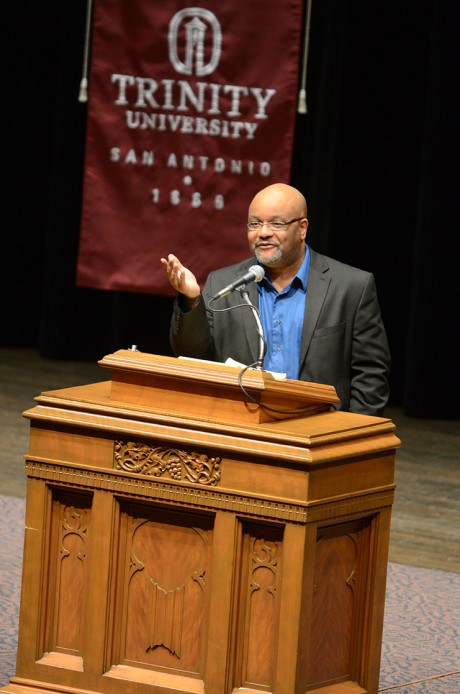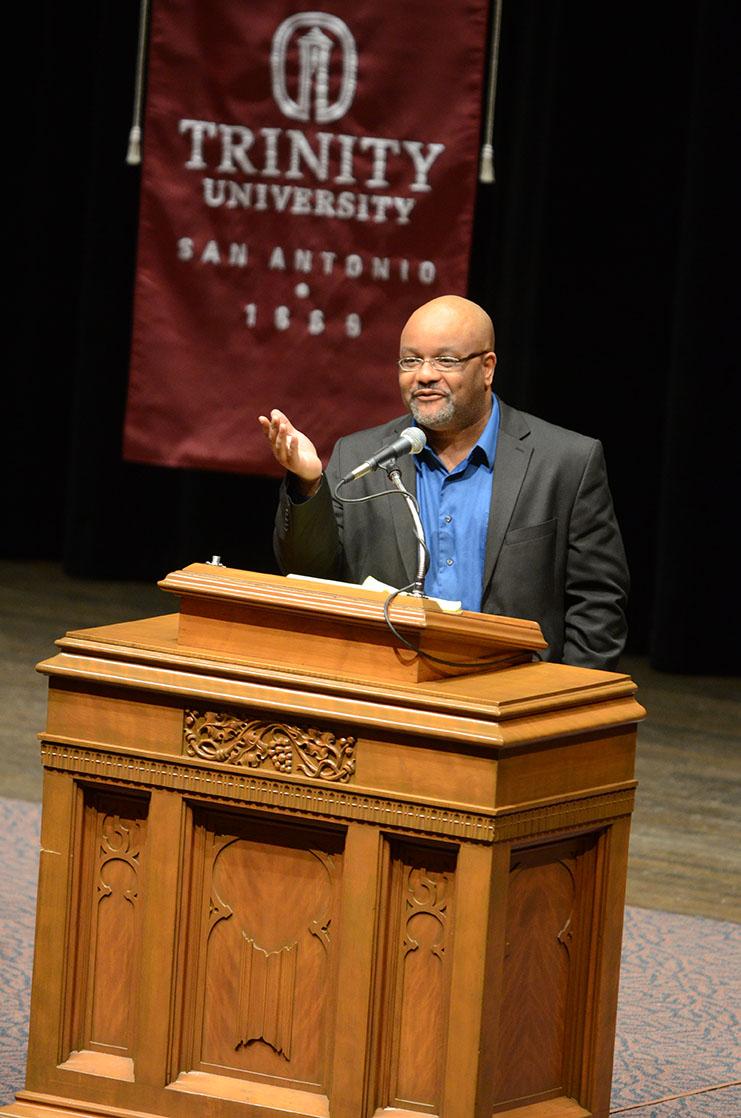
On Thursday, Jan. 17, Dr. Boyce Watkins gave a lecture in commemoration of Rev. Dr. Martin Luther King,Jr. He discussed the legacy of King and the importance of continuing to enforce his teachings. As a financial scholar, Watkins spoke about the monetary responsibility he believes King would want American citizens to take.
Watkins explained that many people tend to see King as a perfect person who set an unachievably high bar for humanity, and somebody so amazing that they could never follow in his footsteps. This may cause some people to deny themselves the opportunity to do their own inspirational good deeds, Watkins said. He added that it is important to view King as both a person who did astonishing things and a human being who did nothing that you can’t.
Watkins also highlighted the growing importance of recognizing that racism still exists in America. The foundations for racial inequality have already been set, and the effects of those are becoming a major social issue. Many African-Americans grow up in poverty because of events that happened centuries ago. Watkins explained that the government is not doing its part to help the poor, the elderly or the children. The people of this country must be financially conscientious in order to improve the welfare of those who have nothing to spare.
Many students were affected by the teachings behind Watkins’ message.
“As an African American student, I felt extremely liberated hearing what [Watkins] had to say,” said first-year Vincent Omegba. “It’s important for others to learn that just because things are better doesn’t mean they can’t be improved.”
“I never realized how much of a lasting impact civil inequality has had,” said sophomore Erin Cusenbary.
Watkins’ words reached many faculty members as well.
“Watkins challenged us all to consider questions of race and inequality in America,” said Dennis Ahlburg, president of Trinity University.
On Monday, Jan. 21, many (do we know how many?) students participated in San Antonio’s annual MLK March. It took place between the MLK Academy and Pittman-Sullivan Park. Over 150,000 members of the community showed their support for Rev. Dr. Martin Luther King, Jr., and vowed to continue modeling their actions after his own.







